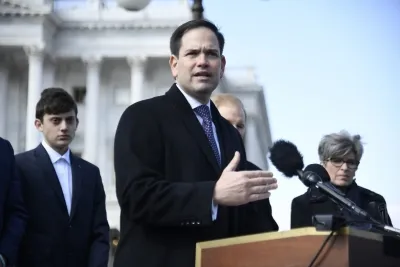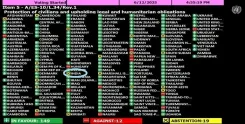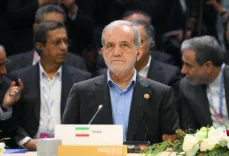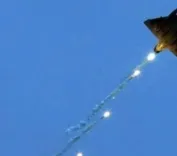Is the US Involved in Israel's Attack on Iran?

Synopsis
In a recent escalation, US Secretary of State Marco Rubio declared that the US did not participate in Israel's strikes against Iran. This unilateral action raises questions about the implications for regional security and US foreign policy. As tensions rise, can we find a diplomatic solution to this crisis?
Key Takeaways
- US denies involvement in Israel's unilateral action against Iran.
- Escalating tensions in the Middle East raise concerns of broader conflict.
- US prioritizes protection of its forces in the region.
- Netanyahu confirms a military operation to address the Iranian threat.
- Diplomatic efforts are ongoing to resolve the nuclear issue.
Washington, June 13 (NationPress) US Secretary of State Marco Rubio stated on Friday that Israel's strike on Iran was a ‘unilateral action’, emphasizing that the US had no involvement. This declaration followed significant airstrikes by Israel against Iran, which escalated tensions in the region and prompted concerns of a potential wider conflict between these long-standing adversaries.
“Tonight, Israel executed unilateral actions against Iran. We are not participating in the strikes on Iran, and our primary focus is safeguarding American forces in the area. Israel informed us that they deemed this action necessary for their self-defense. President Trump and the Administration have taken every required measure to protect our troops and maintain constant communication with our regional allies. Let me be unequivocal: Iran must not target U.S. interests or personnel,” Rubio remarked.
In light of the escalating tensions, the US Department of State issued a security advisory to American citizens in Israel.
“Given the heightened tensions in the Middle East, the security situation remains intricate and can change swiftly. We urge US citizens in Israel and the surrounding region to exercise caution and stay updated with the latest news,” posted the US Department of State on X.
Before the preemptive strikes were conducted by Israel, President Trump expressed his desire to avoid such an outcome.
“I do not want them to engage, as it could exacerbate the situation,” Trump stated, emphasizing his diplomatic efforts to manage Iran's nuclear ambitions.
The US President reiterated his commitment to a diplomatic solution regarding the nuclear issue with Iran.
“We are dedicated to achieving a Diplomatic Resolution concerning the Iran Nuclear Issue! My entire Administration is tasked with negotiating with Iran. They have the potential to be a Great Country, but they must first abandon all aspirations of acquiring a Nuclear Weapon. Thank you for your focus on this matter!” Trump shared on Truth Social.
The airstrikes come amid increasing worries about Tehran’s nuclear program and its perceived threat to Israeli national security.
In a televised address, Israeli Prime Minister Benjamin Netanyahu confirmed that Israel had launched a “targeted military operation” aimed at mitigating the Iranian threat to Israel’s very existence.
“This operation will continue as long as necessary to neutralize the threat against us,” Netanyahu asserted, highlighting the seriousness of this action.
Iranian state media reported loud explosions in several areas of the capital, Tehran, early Friday morning.
IRIB, the state broadcaster of Iran, indicated that the origin of the blasts had not yet been officially confirmed, although speculation suggests that the Israeli strikes may have focused on military infrastructure or nuclear-related installations.









